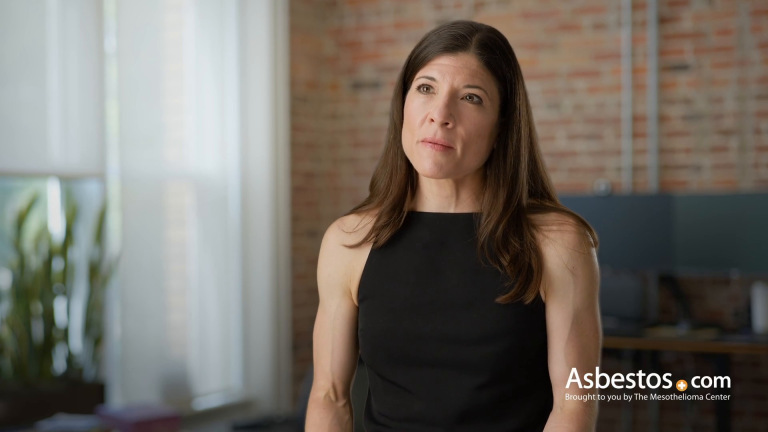Mesothelioma Cure
Mesothelioma isn’t curable yet. But thanks to treatment advances, some patients experience remission. Treatments such as surgery, immunotherapy and chemotherapy can extend survival. Early detection, multidisciplinary care and ongoing clinical trials provide hope for better outcomes.
Is There a Mesothelioma Cure?
There is no definitive cure for mesothelioma. However, long-term remission is achievable. Some doctors consider mesothelioma cured if complete remission lasts more than 5 years. Combining treatments such as surgery, chemotherapy and immunotherapy can significantly improve survival and increase the chances of remission. Consulting with a mesothelioma specialist may offer the best outcomes.
Medical literature on mesothelioma reports only a few cases of complete remission lasting more than 5 years. Partial remission with long-term disease control is more common than complete remission among mesothelioma survivors.
A significant number of patients have entered long-term partial remission after mesothelioma treatment. These treatments have included surgery, chemotherapy, immunotherapy and other anticancer drugs.
Treatments in mesothelioma clinical trials occasionally work for a few patients even if they don’t work for most participants. Treatments that help a handful of patients enter remission rarely move forward into larger studies, but the data still helps researchers develop new therapies for future clinical trials.
“I try to encourage patients to think of it more in terms of a goal of long-term survival with good quality survival,” says mesothelioma specialist Dr. Andrea Wolf. Doctors told 13% of respondents to The Mesothelioma Center’s 2023 mesothelioma patient survey that they were in remission or cancer free.
Refining Treatments to Find a Cure for Mesothelioma
Researchers are working on a cure by improving conventional treatments for mesothelioma. Treatment has improved because of this research. Surgeries are more precise. Chemotherapy and radiation are more effective. Treatment plans have improved and immunotherapy became a standard of care.
Years ago, immune checkpoint inhibitors were considered an emerging immunotherapy treatment for mesothelioma. In 2020, the FDA approved Opdivo (nivolumab) and Yervoy (ipilimumab), in combination for pleural mesothelioma.
- Chemotherapy: Works to kill cancer cells and prevent them from multiplying. Researchers are evaluating combining different chemo drugs.
- Immunotherapy: The combination of Opdivo and Yervoy works with the immune system to attack mesothelioma that can’t be surgically removed.
- Multimodal: A multimodal therapy approach combines two or more treatments, including surgery, chemotherapy and radiation. Researchers are studing new combinations to improve outcomes.
- Radiation: Uses high-energy radiation to destroy cancer cells and shrink tumors while sparing healthy tissue.
- Surgery: Used to remove tumors or damaged tissue. Researchers are evaluating if adding heated chemotherapy or cryotherapy (freezing of tumors) to specific surgical procedures will improve overall effectiveness.
Clinical trials across the nation conduct studies with experimental medications and therapies. These trials also combine conventional treatment with emerging therapies. For example, after years of development in clinical trials, the U.S. Food and Drug Administration approved Tumor Treating Fields to treat pleural mesothelioma. This method uses alternating electrical fields in combination with chemotherapy to limit tumor growth and spreading.

Latest Research for a Mesothelioma Cure
As researchers work on a cure, doctors use treatments developed through clinical trials to control cancer growth, limit side effects and improve quality of life. Advances in conventional and palliative treatment help some patients to live more than a decade with mesothelioma.
Patients at all stages have outlived their prognosis working with mesothelioma specialists who have years or decades of experience treating this rare disease. Patients with an early diagnosis tend to live longer, but reports of long-term survival among late-stage cases are becoming more common.
For example, a 2023 case report describes a patient with advanced pleural mesothelioma who was alive more than 11 years after diagnosis thanks to systemic chemotherapy and immunotherapy. This patient had a malignant adenomatoid cell type that responded well to systemic treatment.
A study published in the Journal of Cancer Therapy described a stage 4 pleural mesothelioma patient who was alive more than 12.5 years after a complete remission with sodium phenylbutyrate treatment. This patient’s cancer was recurrent despite three lines of chemotherapy. Studies on sodium phenylbutyrate have produced inconsistent results, and researchers don’t know why it has worked for some patients.
Emerging Treatments for Mesothelioma
Emerging mesothelioma treatments include targeted therapies, vaccine therapy and unique types of immunotherapies including CAR T cell therapy. Doctors and researchers use clinical trials to develop these new treatment options for mesothelioma.
The following emerging treatment options for mesothelioma are still undergoing testing through clinical trials. As research continues, these methods may become safer and more effective, and eventually could become part of conventional treatment.
- Anti-Angiogenics: Tumors produce blood vessels during angiogenesis, a process that supplies them with oxygen-rich blood for rapid growth. Bevacizumab is a targeted therapy and anti-angiogenic medication that limits tumor blood vessel growth and slows metastasis.
- Cryotherapy: This therapy kills cancer cells with a probe that applies extreme cold to tumors. It is primarily used to control tumors that return after treatment.
- Gene Therapy: The goal of gene therapy is to repair problems defective or missing genes can cause. Suicide gene therapy modifies cancer cells to include a self-destruct gene. Treatment with the p53 gene helps the immune system find and kill cancer cells.
- Immunotherapy: Mesothelioma immunotherapy uses the patient’s immune system to target tumor cells, cancer genes or proteins that contribute to cancer growth. This category includes virotherapy, vaccine therapy, CAR T cell therapy and more.
- Photodynamic Therapy: Photodynamic therapy involves using a photosensitizing drug and activating it with a unique light frequency to kill cancer cells. The treatment only affects cancerous areas, avoiding damage to surrounding healthy tissue.
- Vaccine Therapy: Like vaccines for flu and other diseases, a mesothelioma vaccine helps your body produce antibodies to fight cancer. This treatment can provide long-term protection against a recurrence for patients in remission.
- Virotherapy: This emerging therapy involves laboratory-manipulated viruses that deliver medication and gene therapy inside cancer cells. Virotherapy is also notable for eliciting an immune response and combining well with other immunotherapies.
As more therapies emerge in fields such as epigenetic therapy, patients benefit from new techniques that may work better than standard treatments. Specialists also test multimodal treatment plans to combine novel treatments with traditional therapies for better results. Scientific advances will continue, and new cancer technologies will emerge, allowing researchers to one day develop a cure for mesothelioma.
Clinical research trials offer substantial benefits for mesothelioma patients, especially those who haven’t responded well to traditional options such as surgery or chemotherapy. Patients can speak with their provider, a Patient Advocate or a mesothelioma specialist to find eligible trials in their area.
Clinical Trial Process
Currently, the process for introducing a new cancer drug typically takes 12 to 15 years. It takes nearly 7 years for a new drug to make it to the first clinical trial stage. Preliminary research tests new drugs on samples of mesothelioma tumors in laboratories rather than on patients directly, thanks to the National Mesothelioma Virtual Bank.
Clinical trials on humans may begin once a drug or treatment has shown success and safety in a lab setting. Researchers spend years performing tests to ensure patient safety. Clinical trials measure patient side effects, adverse reactions and overall benefit before pharmaceutical companies get approved to market a drug for widespread use.
Mesothelioma Research Centers
Some of the most impactful research is underway at research centers and hospitals throughout the United States. Some of these centers and hospitals conduct preliminary laboratory research, while others conduct clinical trials in mesothelioma patients.
- National Institutes of Health
- Shukla Research Lab at the University of Vermont
- Mount Sinai Hospital in New York City
- Harvard Medical School’s partnership with Brigham and Women’s Hospital
- AdventHealth Celebration in Kissimmee, Florida
- Vaccine and Immunotherapy Center at Massachusetts General Hospital
Top treatment centers have the best support and resources to run mesothelioma clinical trials. Mesothelioma specialists and their multidisciplinary teams are active in these trials, which provide the latest emerging treatments and asbestos cancer medication to eligible patients. Speaking with a mesothelioma specialist is the best way to access the latest clinical trials and resources.

Obstacles to a Cure for Mesothelioma
While the average mesothelioma survival rate has improved in recent years thanks to emerging treatments, there are still several hurdles on the road to a cure. Mesothelioma is a rare form of cancer. There is a distinct lack of awareness and research dollars for it compared to the more common lung, colon and breast cancers.
Government research on mesothelioma receives less federal funding compared to other cancers. Researchers also face challenges finding participants for clinical trials involving surgery, which historically is associated with longer survival rates.
Mesothelioma symptoms typically don’t appear until later stages of progression when treatment options are much more limited. A late-stage diagnosis often disqualifies patients from multimodal therapy with surgery, limiting available trial candidates.
Researchers are developing approaches to treatment that may downstage a patient’s cancer, allowing them to qualify for surgery. For example, a 2020 report described a stage 3 patient downstaged to stage 2 after chemotherapy. The patient then qualified for aggressive surgery and was still alive at a 30-month follow-up.
How You Can Help Find a Mesothelioma Cure
People who participate in clinical trials, donate funds for research and support advocacy groups can help in the search to find a cure for mesothelioma. By getting involved, you can play a role toward a brighter future for mesothelioma patients and their families.
- Participating in Clinical Trials: Participation allows patients to contribute directly to the advancement of treatment options and an eventual cure. These trials have led to FDA-approved treatments that help people live longer with mesothelioma.
- Supporting Research: Supporting organizations financially or through volunteer work helps researchers find a cure for mesothelioma. Every contribution, big or small, makes a difference in the fight against this disease.
- Helping Advocacy Groups: Cancer advocacy groups educate the public, policymakers and health care professionals about the impact of mesothelioma. They also raise funds for research and to support affected families.
- Raising Awareness: Increased awareness of a disease contributes to early detection, better treatment outcomes and support for research initiatives. Raising awareness promotes early diagnosis when treatment is most effective.
Through the collective efforts of patients, families, doctors and researchers, we can make significant strides toward finding a cure for mesothelioma. Together we can unite with hope, support and determination for a future free from this devastating disease.
Common Questions About Finding a Mesothelioma Cure
- Has anyone been cured of mesothelioma?
-
There is currently no cure for mesothelioma, but some patients have lived more than a decade in partial or complete remission. Medical research documents several cases of long-term and complete remission, but partial remission is more common. Advancements in treatments through mesothelioma clinical trials continue to provide patients hope for an eventual cure.
- Can lung surgery cure pleural mesothelioma?
-
Pleural mesothelioma surgery is not a cure, but it is one of the best treatment options. Being a candidate for surgery can extend the life expectancy for a pleural mesothelioma patient by a year or more.
- What are the chances of surviving mesothelioma?
-
Despite a lack of curative treatments, about 5% of pleural patients and 39% of peritoneal patients have lived more than 10 years with mesothelioma. About 12% live longer than five years with pleural, and 65% of peritoneal patients live at least as long as five years.
- How does early detection improve mesothelioma survival rate?
-
Patients diagnosed with mesothelioma in an early stage of progression often qualify for multimodal treatment. Treatment at an early stage helps to control this condition and is associated with improved survival rates.
- Are there any promising new mesothelioma treatments?
-
Researchers are exploring new treatment options, including targeted therapies, immunotherapy and new combinations of treatments, that show encouraging potential in clinical trials. Physicians are using recently approved immunotherapies for mesothelioma and combining targeted therapies with chemotherapy to improve survival.




